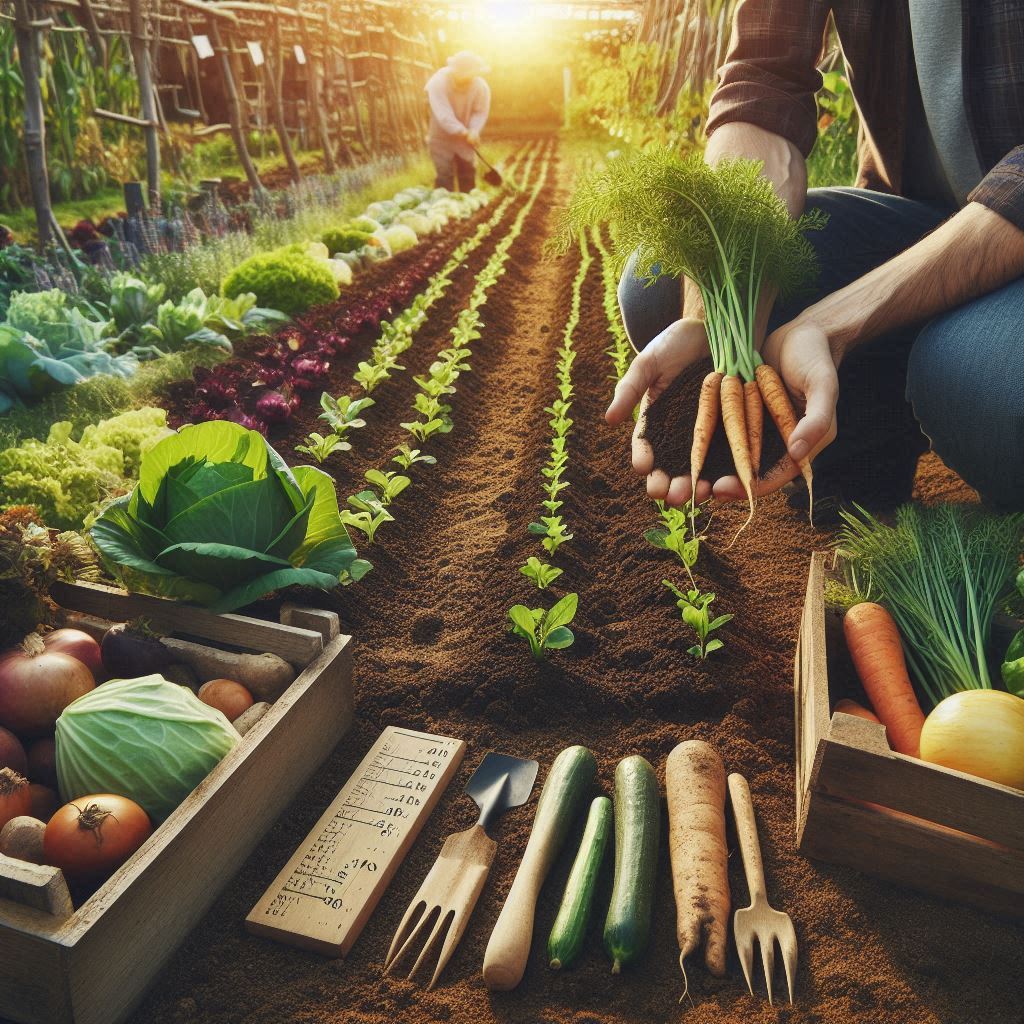Start with Organic Seeds for a Pure Beginning
The selection of appropriate seeds is the first step towards organic vegetable cultivation. Vegetables grown from organic seeds are pure from the beginning because they are grown without the use of artificial fertilizers, pesticides, or genetically modified organisms (GMOs). Due to their adaptation to natural growing environments, these seeds are harder and more disease- and pest-resistant. You’re laying the groundwork for a garden that adheres to organic farming principles when you plant organic seeds. To make sure the seeds fulfill the requirements, look for those that are labeled “certified organic.” Heirloom varieties offer more flavor and diversity.
Enrich the Soil with Natural Compost
The secret to successful organic gardening is healthy soil. Rather than depending solely on synthetic fertilizers, enhance your soil with organic compost derived from broken-down plant matter, leftover food, and yard waste. Essential nutrients like phosphorus, potassium, and nitrogen found in compost help to strengthen plant growth and enhance soil structure. Your vegetable garden will benefit from a healthy ecosystem that supports beneficial organisms, holds onto moisture, and promotes root development if you add compost on a regular basis. Before planting, incorporate compost into the soil and keep adding more throughout the growing season for optimal results.
Use Natural Pest Control Methods
Although pests are an unavoidable aspect of gardening, chemical pesticides are not used in organic vegetable farming. Rather than endangering the environment or your health, natural pest control techniques are employed to safeguard your plants. Growing plants that ward off pests or draw beneficial insects together is known as companion planting, and it’s an effective tactic. For instance, basil keeps aphids away, while marigolds can keep nematodes away from tomatoes. Furthermore, pests can be naturally controlled by introducing beneficial insects like ladybugs and predatory wasps. In addition to regular monitoring, hand-picking pests helps control their population.
Rotate Crops to Maintain Soil Health
An integral part of organic vegetable gardening is crop rotation. Each season, move your crops to avoid the accumulation of pests and diseases in the soil that frequently target particular plants. Because different plants require different amounts of nutrients, crop rotation also aids in maintaining the nutrient balance in the soil. Legumes, such as beans and peas, for instance, enrich the soil with nitrogen, which is beneficial for subsequent plantings of leafy greens in the same location. You can encourage healthier soil and guarantee a more plentiful and varied harvest each year by rotating your crop.
